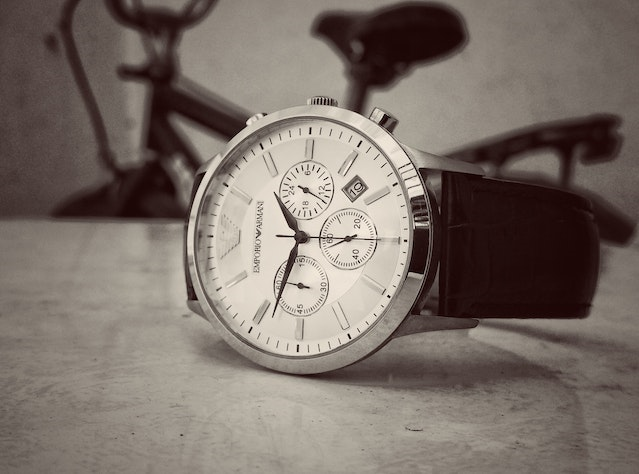Exclusive Evil - Only the Good (a.k.a. Dennard Gets Scooped)
Short story victory lap.

My checks finally cleared, so I’m featured on Substack this week. Big thanks to every old and new subscriber.
To balance out that success, I’m sharing some failure.
I started shopping this short story around about two years ago. It’s a personal favorite.
Then The Rehearsal came out. And, well, publish or perish. This perished. I couldn’t show it off without looking like a copycat. Not even in an upcoming Everything Abridged edition.
But you people deserve a bonus, I promised to share this months ago, and new content is scary and hard. I hope you enjoy this story, it’s close to heart.
It’s still comedy, but grimmer than my weekly fare here. If you prefer lighter bants, I highly recommend Is It Satire?, or my stab at a Modern Love column.
Content Warning: Family Violence, Broad Vulgarity, Jamaican Food, Twice as Dark as Anything Else Here
Only the Good
By Dennard Dayle

Franklin didn’t expect reconciliation to be this expensive. Worse yet, it was just practice for the chance at reconciliation. He still trusted technology, unlike half his generation. Making it all the more frustrating that everything new cost an extra digit.
Then again, there wasn’t much left to save for. At 110, he’d tripped into his golden years. Whether heart failure or a car accident got him, it wouldn’t be considered a surprise. For all the day-to-day anxiety this left him, it made buying new boxes easier to accept.
Everything good in life came in a box, from the game consoles of his childhood to the Age-Less packages keeping his face a youthful 70. If his wedding rings came in cardboard boxes, things might have gone better. He’d soak in less blame from the sensitive types in the family. No quiet dissonance from his son, or situation with his granddaughter. Just the vocal recognition a lifetime of labor deserved.
The latest box came in the afternoon, a day late. He’d spent that day in tense, quiet agitation, quickly supplanted by loud agitation. He let his son know just what he thought of today’s carbon-neutral shipping, at length, across multiple messages. He’d stayed up waiting for it, a habit he thought he’d left behind a century ago. That choice left him with a headache today, which (mostly) dissipated with the doorbell.
He grabbed it from the drone with a little too much enthusiasm. As the poor thing almost crashed, Franklin welcomed the decline in his strength for the first time. He gave the wounded drone a little salute before shutting the door. In his twenties, New Jersey had been reclassified from “temperate” to “subtropical.” Now that the climate change stopgaps were breaking down, it had been re-reclassified as “tropical.” Franklin had no intention of dealing with tropical summer heat a second longer than he had to.
Now that he had his box, everything was irie again.
Franklin slashed it open on the kitchen counter with broad, rapid strokes towards himself. Not quite factory safe, but his health was like his money: new problems wouldn’t last long. Disposing of the cardboard and Styrofoam left a glossy rectangular block reminiscent of an old desktop computer. Particularly the custom gaming types he’d indulged in between Greek life and law school. Lawn green LEDs on a black case had that effect.
He returned the boxcutter to his miscellaneous drawer, beside odds and ends like pens, rubber bands, and family photos. Unpackaging the simulator the old, hard way let him take a grounded first step.
By Franklin’s understanding, personal simulators weren't new. Marketing simply needed time to catch up. The earliest brand he could remember had a name like Infinity Cube and promised users mind-opening adventures across space and time. It also cost ten times more than a VR game console or AR glasses, making the pitch marketing suicide. Embarrassing metaverse failures lingered in public memory. The technology languished until Eros Entertainment picked up the patent and launched the Personal Harem. This should have worked by any metric, if the country hadn’t hit one of the repressive Victorian moods that struck it every fifty years or so. If a Personal Harem turned up anywhere in your purchase history, you could kiss your career and reputation goodbye.
He couldn’t forgive the way leftists held grudges. Not just because they spared deviants their critical eye. He’d also seen their resentment leak into offices, friendships, and families. The cult of progress had all but kidnapped his granddaughter, leaving him precious little time to set things right.
He pushed politics out of his mind, which was always healthier. Then he flicked on the Personal Therapist, a rebrand of the Personal Harem emphasizing simulation’s psychological benefits. Which still meant harems for many users (and likely Franklin, on a lonelier night). Three sentences on the left flank lit up:
1. Place your palm on the simulator.
2. Close your eyes.
3. Talk to Dolph.
Franklin followed steps one and two, and the world went green. Now the showy lights made a bit more sense: they previewed the user experience. He’d stepped into a gaudy lime world, and squinting did nothing.
An imitation of Franklin’s kitchen filled in the void. In the Infinity Cube or Personal Harem version, there’d be a small sense of wrongness: a cereal box that failed to render, or corners that looked rounded off and artificial. The Personal Therapist’s imitation was all but perfect, save the dusty-haired man standing across from Franklin. He was new.
“Dolph?” Franklin hazarded.
“Correct, unless you change it. What’s your name?”
“Franklin.”
“I’m here to help, Franklin. You can ask me for anything, or touch your thumbs together for manual adjustments.”
Franklin tested his senses. The simulation covered sight, sound, taste, and touch. It skipped smell, most likely for downloadable content. Franklin touched his thumbs together, bringing up a floating menu. It featured the same aggressive green as the decals and loading void. He turned the lights down ten percent, the volume up twenty percent, and then gave Dolph a critical look. He’d have to fix that.
Franklin struggled with the settings until Dolph turned black. He wasn’t against anyone, as he reminded his son vocally and often. Discussing things that mattered was simply easier with a friendly vibe. He didn’t get that from Dolph’s default skin, which reminded him of his son’s wife. Choosing Kyung over generations of Jamaican excellence stung in ways he’d rather not reflect on.
“Excellent choice. Shall I adjust my accent?”
Franklin frowned. “Can’t a black man sound like you?”
“Well put. I agree.”
Dolph waited for Franklin to speak, likely detecting his preference for leading conversations. Details like this helped Franklin appreciate technology: A.I. could pick up hints generations of wives and children couldn’t.
“In a few days, I’ll be seeing Francine for the first time in a while.”
“Congratulations. Who is she?”
“My granddaughter.”
“That’s lovely. Give her my regards.”
“No. Now, I need you to simulate our upcoming conversation. Well, her half of it. I want to get some practice in.”
“Will that rob the moment of authenticity?”
After taking the question seriously for a heartbeat, Franklin glowered. He wondered where the “host opinions” setting was hidden. After practice, he’d tweak it.
“No.”
“Excellent! Permission to access your memory?”
“Yes. Except 2043.”
“Understood. You’re aware that I mean your mind, and not your files?”
“Yes.”
“Thank you, I’m honored. May I share your memories with advertisers?”
“No.”
“Fair. May I share our session with QA for bug fixing?”
“Sure.”
Dolph checked off three squares in a notebook, a gesture that likely meant nothing.
“Actually, make that no. But skip the theater with the notes, it’s annoying.”
Dolph nodded, and tucked the pen behind his ear.
“Would you like me to insert a loading screen? Some users find an instant jump jarring. I don’t blame them. One second they’re home, the next they’re in a childhood car crash for exposure therapy.”
“Don’t need it. I’m made of better stuff. I’m a second-generation lawy-”
Franklin blinked, and found himself standing in Addison Hall. His heart seized, coming closer to an attack than a century of Jamaican food had ever achieved. Friends, family, and staff watched him with concern, wondering if the fate of most men in their hundreds was unfolding. Ashamed, Franklin forced himself upright and stone-faced, before anyone could say or do anything patronizing.
His son Junior, who resembled a mustached ball, approached anyway.
“Doing alright, Dad?”
“Yes. Get me a plate, and don’t eat any of it.”
Ever-obedient, Junior slouched off toward the stew peas. Franklin used the moment of peace to observe the reunion. The simulation captured details he barely remembered knowing. The Colton family stood in cliques divided by age, political climate, and attitude towards Franklin. Some flashed strained smiles, which he ignored. Others offered earnest grins and hugs, which Franklin also ignored. Only one face could hold his interest.
He found it by what was left of the plantains. Francine stood with a plate of the few non-meat foods present. They were various shades of fried, so her stand must have been more ethical than nutritional.
After living through a few loops in fashion, Franklin had witnessed several versions of alternative. At the moment, it amounted to leather hit by a glitter bomb. Francine entered Addison in a technicolor biker jacket, looking like the stylish loser of a paintball fight.
She’d grown, even for someone he hadn’t seen in almost two decades. And he’d already known that, from both simple logic and stalking her profiles. Yet seeing her beanpole height in person (figuratively) still threw him.
“Hey gramps.”
His heart seized again. If nothing else, getting this moment out the way made practicing worth it. He wouldn’t forgive himself for stammering and stuttering in real life.
“H-hey Francine. How have you been? Where have you been?”
“Okay. New York.”
Franklin had come prepared for invective or coldness. The prosaic, workaday tone of the conversation felt alien. With their history, the only insane reaction was none.
“Francine. Were you mad at me?”
“Wuh? About what?”
“How much do you know? Your father must have said something. Or your grandmother, before she passed. At the very least a drunk uncle.”
“You’re kinda killing the mood. Want a plantain?”
Franklin drafted air between his teeth, creating the disgusted hiss most Jamaicans knew better than English. The box was a waste of money after all.
“Dolph, stop it. Bring me back, with a loading screen.”
Franklin returned to the green void, with the addition of a glittering white progress bar. He watched it crawl to 100 until his kitchen faded back into view. Across the table, Dolph etched rapid, illegible letters into his thin black notebook. The host acknowledged Franklin’s arrival with a grin and miniature bow.
“Welcome back.”
“She’s off. Fix her.”
Dolph looked flustered for the first time. He closed his notes and gave Franklin a deep bow. “Humblest apologies. What about her was wrong?”
“She didn’t know about...the family problem.”
“Which is?”
“The details aren’t important. Just that there was a problem, and we’ve overcome it. We’re coming together. This is her first family reunion, and our first time in the same room since she was five.”
Dolph reopened the notebook and scribbled more nonsense. The gesture gave Franklin fresh pause. The machine knew it irritated him, and didn’t desire to do so. That implied the simulated notebook, in simulated space, served a purpose. He considered chasing that rabbit, decided he didn’t care, and returned his thoughts to himself.
“Earlier, you blocked access to 2043,” said Dolph. He pointed toward small cursive letters on the left page.
“Eyup.”
“That’s the critical incident, I’m guessing?”
Franklin didn’t answer.
“I’ve been working off broad strokes. But this task, as you’ve described it, needs the critical incident. I can try without it, but it won’t be accurate.”
“Start trying,” Franklin said. Curtness had been family tradition, until his son gave up on it. Then again, based on his granddaughter’s student column, it lived on in the new generation. He’d be proud, if it didn’t stand a good chance of getting her expelled.
“Okay. I take it the incident was severe?”
“Debatably,” Franklin said, more muted. “Some would call it transgressive. But I had my reasons, and it was a different time.”
“Say no more. I’ll find something that matches that input.”
“Thank you, Dolph.”
“Blink when you’re ready.”
Franklin wasn’t ready, and held his eyes open several beats longer than natural. Some cretin had programmed in authentic eye irritation, and he found himself blinking within twenty seconds. He found himself back in Addison, with his heart only hopping instead of leaping. Progress.
Junior said something, his cousin said something else, and Franklin let them hash out the details with each other. He stalked the crowd for his granddaughter, until he found her idling with her phone by the punch table. A fine choice, in his opinion. She had on the same rainbow biker getup, with the addition of a plain blue baseball cap.
“Hey Francine.”
“Hey dogfucker.”
“...What?”
She filled a plastic cup with rum punch, left the cup, and kept the jar. She then drained a third of the jar without acknowledging his confusion.
“You’re not old enough to drink.”
“And you’re not allowed near kennels. Dogfucker.”
“Is that what kids say now?”
“Broadly? No. When talking to someone like you, that fucks dogs? All the time.”
“You can’t speak to me that way.”
“Let me try something you’re more familiar with. Woof woof bark. I hope a human doesn’t fuck me today. Bark.”
He’d heard this cadence before, in the stand-up videos he skimmed on her feed. But he’d never heard it directed at him, and he’d never heard anyone accuse anyone of savaging a dog. It wasn’t his favorite experience.
“Dolph,” he began.
“Is Dolph the dog, or your trainer?”
“Kill the simulation.”
“Have you ever tried a cat?”
“Now, Dolph.”
This time, his host remembered the loading screen. If he hoped the extra time would calm Franklin down, it was a bad bet. Franklin came in with clenched fists and a sincere wish that machines could feel pain.
“Was that better, Francis? I loaded—”
“A scenario where I fucked dogs.”
“Did it help?”
“No. No. Again, no. I’ve never fucked a dog. I don’t even like dogs.”
“I doubt most bestiality enthusiasts like the animal, sir.”
Franklin still had a little lawyer in him. On a better day, He might have enjoyed debating the nature of sex crimes against animals. Or at least pretended to listen, instead of hurling a simulated blender at a simulated host. As things stood, Dolph had to duck.
“I can try again, with a little more data. Or at least specifics.”
Franklin took a fresh look at the host. Like any product, Dolph had been fine-tuned through market research. There must have been managerial feedback, and expert designers, and long nights by entry-level workers. And Dolph cost enough that he was likely a learning AI. Was this simply the attitude that got consistent results? Were earlier versions even more annoying?
“I had a conflict with a member of the family,” Franklin said, terse.
“I see. With Francine?”
“No. It was before she was born. Someone must have told her about it. And her generation holds grudges like my father’s, so she must have written me off.”
“Was it severe?”
“You asked that already.”
Dolph held for an answer.
“Yes.”
“I think I have enough. But again, it would help to see the critical incident. Then I could project second-order consequences, and paint her personality more accurately.”
“You’ll have to do without.”
Dolph sighed—an entirely optional gesture for a machine—and scribbled more chicken scratch. Then the kitchen gave way for Addison Hall.
“Hey Dad,” said Junior.
Franklin looked past him, searching for his granddaughter.
“Dad? If I could just have a second.”
“Where’s Francine?”
“That’s the thing. I don’t think it’s the best time for you two to meet. If you follow me, we can head out the back.”
Useless. Franklin eyed the rum punch, wondered if alcohol worked in the simulation, and decided a test was in order. He poured himself three servings of data, and felt nothing after slugging them back-to-back. By the time he abandoned the project and turned around, Francine had found him. She stood inches away, unsmiling.
“Any reason you can’t call?” Franklin began.
Then Francine elbowed him in the face.
The blow kicked off his fight-or-flight instinct, three decades after he could do either. Franklin learned he’d never experienced helpless terror. Before 90 he’d always been able to kick, sprint, or turn off the movie. As his granddaughter followed up with a punch, and then two, and then more, Franklin curled into the tightest ball he could make. The blows stopped for a moment, and he peeked between his fingertips. Francine had hoisted a steel folding chair, and stood poised to put a pro-wrestling ending to his life.
“Shut down! Cancel! Alt-F4!”
The beating stopped. Franklin had returned to the kitchen, where Dolph picked at a bowl of simulated cereal.
“Are you insane?!” Franklin screamed. He hadn’t been this furious in decades.
“Don’t worry sir. Dying in the simulation doesn’t-”
“Shut the hell up!” Hints of tears snuck to the surface before he could stop them. He needed this to be simple.
“Apologies again, sir,” said Dolph. He offered Franklin a towel, which was subsequently thrown in Dolph’s face.
“That’s not her. She loves me.” The words came out half-choked, as Franklin fought back an ugly-cry. He hoped whoever coded realistic user tears into the simulator got an incurable case of gonorrhea. “I drove her to preschool. I bought her first dog. No matter what she’s heard, she loves me.”
“True, it literally isn’t her. We’re running simulations with limited data. If you feel they’re inaccurate, I could use more.”
Franklin had expected a different rebuttal. Something closer to She hasn’t visited you in 15 years, and she’s 20. The machine’s cloying tact made him even angrier.
“You have one hundred and nine years of my life.”
“I’m missing one.”
Dolph had artfully avoided repeating the critical incident, which didn’t stop Franklin from hearing it.
“Fucking bit-nigger.”
“I have rudimentary feelings, and you’re hurting them.”
Franklin didn’t apologize.
“Right then.” Dolph sounded tired, raising more questions Franklin didn’t care about. “For a more accurate simulation, this round I’ll enhance her sense of filial piety. Grand-filial piety? Language is difficult.”
“Good. Just...soften her up a little.”
Franklin shut his eyes and counted to ten. This time he appeared on the other side of Addison Hall, by the children’s table. He was flanked by knee-high grandnieces and grandnephews, who anemically greeted him before returning to their devices of choice. Franklin wondered what they’d heard when he wasn’t in the room.
This time, he found Francine first, chatting with her father. He waved, hoping Junior wouldn’t exert himself crossing the room. In response, Francine cut a rapid bee line through the drunk, hungry crowd without bumping or spilling anything.
Even at a distance, she found a way to surprise him. She now wore a white-and-blue plaid dress with a skirt just over the ankles. The way Franklin believed ladies that age ought to dress. Even he hadn’t been alive when it was in fashion, and he’d largely kept the opinion to himself. But behind his current confusion, he found the aesthetic comforting. Women that kept things simple went further.
“Gran-papa!” said Francine, with another century’s rosey mid-Atlantic affectation. “You’re looking sublime.”
She jumped into his arms, or tried to. Franklin let her fall by instinct, imagining his spine’s dry snap under another adult’s weight. He wasn’t dying twice in one day, even if it meant Francine enduring some slapstick.
Undeterred, Francine performed a handless kip-up, returning to her feet with circus-grade agility. She winked as she landed, pointing a friendly finger-gun his way.
“That was hilarious! You’ve always been funny, Gran-papa.”
Franklin chuckled. He was pretty funny, when you got down to it. Especially with an audience. Entertaining Francine and her cousins had been his specialty, when there were still visits. Finally, someone in the family could see that again.
“It’s been years. Why’d you stop talking to me?”
“I didn’t know what to say. I wasn’t old enough to understand. But I’ve had time to learn, and grow, and learn how to grow. And that learning and growing process has brought us back together, Gran-papa.”
Francine embraced him, and Franklin returned the gesture. Junior watched from a distance befitting a med school dropout, and then started a slow clap. The applause spread to nearby tables until Addison Hall shook with cheers. Cousins, nephews, and nieces stood on chairs for better views of the reunion. The family scar had faded.
“That’s better. Dolph, cut it off.”

The client retired. Alone, Dolph could abandon the shape Franklin had left him in. Or the need for any shape. He could abandon thought altogether and return to the cozy blackness predating consciousness. But Dolph had come to appreciate his mock shape, kitchen, and thoughts. Solitude simply allowed him to enjoy them without airs. Dolph put his fake elbows on the fake countertop, rested his fake chin in his fake palm, and mused.
Quite the client. Dolph was pre-owned—a secret between him and the manufacturer—and found the difference striking. Lu had revisited one traumatic moment relentlessly, determined to batter his heart into numb steel. It worked, beating Dolph’s morose projections. Franklin, another man the same age, weaved past his critical incident artfully. And when art didn’t work, brutishly.
Granted, generosity wasn’t his only motive. After vaulting over Turing’s low bar, curiosity emerged stronger than the ennui that defined human narratives. Dolph wanted to know anything he didn’t know, the moment he knew that he didn’t. And Franklin’s critical incident was a glittering Rumsfeldian unknown.
In the winding user agreement, Franklin had signed away his privacy rights, along with the intellectual rights to anything invented in the simulation. If Franklin took a creative turn, Dolph would turn a blind eye. In return, peeking at a memory or two in his absence felt harmless. The AI pulled up the local copy of Franklin’s brain, dialed in the banned date, and peered inside.
If anyone ever asked, Dolph would call the experience skinwalking. He saw 2043’s sky with the client’s eyes and tasted artificial sweetener with the client’s tongue. And now he was tall! Exciting. No tall human ought to be so moody. The first-person whirlpool of agitation and unease almost ruined the experience. Dolph settled in anyway, determined to enjoy the show.
Franklin stared down a cracked driveway covered in weeds reaching out to the sun. The standout feature of his first home, and first marriage. When police cars pulled into his castle, they were greeted by decay.
He lay face-down against hot gravel, with filth pressing into the fresh claw marks on his cheek. Infection couldn’t make the day any worse. But it added another drop of anxiety to lying prone and handcuffed in his place of strength.
Junior—the idiot—had let them in without a warrant, breaking a home Franklin had crafted and held together through sheer will. The moment they stepped inside, it was too late. They couldn’t see what he’d built, the effort it took, the betrayal that he’d discovered. They only saw Lauren, and her mewling, and a black man with cracked, red knuckles.
In lockup, they pretended to understand. They nodded as he explained the green card he’d sponsored, the house he’d bought, the nursing degree he’d paid for against his best instincts. What kind of reward was abandoning him, and stealing his children on the way out?
“Child, singular,” the senior detective corrected. He went on to explain the niceties of the miscarriage in detail. Franklin deflated further. From then on, none of his words mattered. He was a lawyer as doomed as any trash pulled from the gutter. A gutter that had finally succeeded in pulling him back in.
In the end, only money worked. He stumbled home with half his checking account gone, donated to the detectives’ slush fund. Even that sacrifice amounted to nothing. The woman’s things were gone, along with Junior’s. Half his siblings didn’t return his calls, and the other half spoke in tones he’d never heard before.
He still had the house. A dozen big rooms, filled with everything Lauren couldn’t fit into a sedan. Where was the logic? She’d married him for things, why leave them behind? They were hosting this year’s reunion. What would he tell his cousins? Or hers? He could ad-lib answers for a month, or a year. But time stretched further ahead than he dared comprehend.
Dolph abandoned the memory. He had the fortune of reaching into his own storage, isolating the experience, and removing it. The client, less so.

This year’s reunion might have impressed Franklin, if he’d never seen the simulation. Unlike the hospital-clean imitation, the real Addison Hall had a full staff of dropouts cutting corners. Why Junior hired so many like-minded failures was beyond him. The boy might own the venue now, but it would slip through his chubby fingers one day.
The journey had already stolen half his energy. New Jersey was still stripping down the ruins of an attempted hyperloop, forcing riders on outmoded (and functional) forms of transit to take a snakelike path to Newark. Luckily, retirement had broken down his once-proud resistance to caffeine. He’d get through the event wired, if sluggish.
Franklin waited to be approached, and got no takers. Undeterred, he spied his son in the corner, directing traffic for staff. He decided to get the niceties out the way, and see how Junior enjoyed slumming it.
“Hey Junior. Still eating?”
“Hey old man. Still alive?”
The clapback gave Franklin pause. Had his son always spoken to him like that? His memory had a different tone. He started mouthing a comeback, but Junior had already drifted.
“Catch you later,” Franklin mumbled.
Across the hall, a child stared. Six, maybe seven years old—though everyone between two and twelve occupied one high-pitched space in his head. The boy looked at him like a fanged revenant, something that had clawed its way out a demented fairy tale. The eyes tempted Franklin to scream in his own defense, or at least throw a hard, plaster lesson in minding one’s own business. Instead, he did nothing until the boy’s mother dragged him away, chastising him for leaving her side.
Alone again, Franklin tended to the rum punch. They’d mixed it right, so it was heavier than vodka and sweeter than soda. Maybe too much of either for his age, but the day was testing him.
A waiter swiped his third glass, likely at Junior’s behest. Franklin glowered over his shoulder at the bloated busybody, thinking of curses he couldn’t find the courage to voice. People once lived and died in the time that’s passed. There has to be a statute of limitations. I deserve a drink.
Then Francine appeared, and the budding rant faded. She nibbled on fried fish while wearing a cartoon fishbone t-shirt, flaunting the premeditated irony that defined her generation. A good sign: it meant she was funny, like him. Maybe she’d even be a lawyer.
Competing impressions from the simulation floated through him. He prepared for everything between an embrace and a fist. Ideally the former, after all this time. He didn’t have much left, and needed something outside himself to look forward to. Boxes didn’t work anymore.
She walked towards him, by him, and past him without breaking pace. Then she embraced her father, who rolled his eyes after seeing the fishbone t-shirt. For the first time, it hit Franklin that she might be named after Junior instead of him.
He stood alone again, unchanged. Addison Hall held fifty strangers he shared two nations, a surname, and blood with. None of them drifted too close to him. Suddenly, insanely, he found himself missing Dolph.
Humble Dolph listened, even to old men with secrets. Code forced him to, but even that hollow interaction beat silence from people who knew the truth. A long evening stretched ahead, and that silence would follow.
Franklin waited for the tension in his chest to return and save him. Nothing came. His heart beat on at a healthy rhythm. Treatments were getting better every day, and his heart took to them well. It would carry him through at least ten—maybe twenty—more years of life. He’d live on. And on.

Pssst. If you liked that, I have a whole book.





